Greek mythology is a treasure trove of fascinating stories, gods, and mortals. From the mighty Hercules to the cunning Odysseus, these legendary figures have captivated audiences for centuries. In this article, we will explore some of the most famous and important mortals in Greek mythology, delving into their heroic deeds, tragic encounters, and enduring legacies.
1. The Brave Hercules
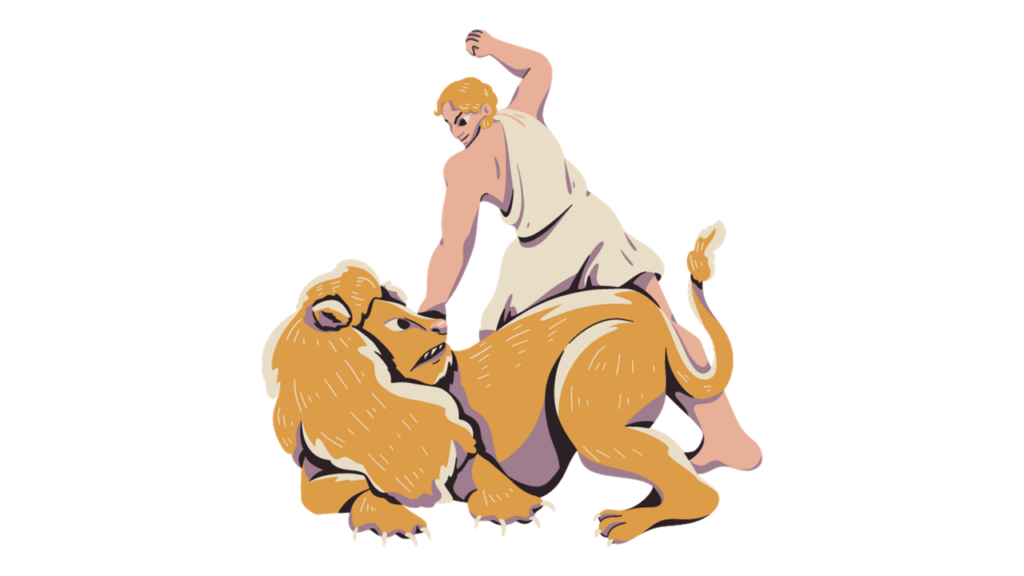
Hercules, also known as Heracles in Greek mythology, is one of the most celebrated heroes of ancient Greece. His story is filled with extraordinary feats, challenges, and divine trials. Here is the tale of Hercules:
Birth and Early Life: Hercules was the son of Zeus, the king of the gods, and Alcmena, a mortal woman. Zeus seduced Alcmena by taking on the appearance of her husband, Amphitryon, on the same night he was away at war. As a result, Hercules was born with incredible strength and power.
Hera, the wife of Zeus and Hercules’ stepmother, despised him due to his divine lineage. She plotted against him from the moment of his birth, which would lead to many of Hercules’ later trials.
The Twelve Labors: Hercules’ most famous exploits were the Twelve Labors, a series of seemingly impossible tasks imposed upon him as a form of punishment for a crime he committed in a fit of madness. These labors were:
- Slay the Nemean Lion: Hercules strangled the lion and used its impenetrable hide as a cloak.
- Slay the Lernaean Hydra: He defeated the multi-headed serpent by cauterizing its neck stumps to prevent them from growing back.
- Capture the Erymanthian Boar: Hercules captured the giant boar alive.
- Capture the Hind of Ceryneia: He caught a golden-horned deer sacred to Artemis.
- Clean the Augean Stables: Hercules diverted two rivers to wash out the vast and filthy stables in a single day.
- Slay the Stymphalian Birds: He used a rattle to drive the man-eating birds into the air and shot them down with his bow.
- Capture the Cretan Bull: He captured the bull, which was causing chaos on the island of Crete.
- Steal the Mares of Diomedes: Hercules overcame the man-eating horses by feeding them their owner, Diomedes.
- Obtain the Girdle of Hippolyta: He retrieved the queen of the Amazons’ girdle.
- Obtain the Cattle of Geryon: Hercules slew the three-bodied Geryon and took his cattle.
- Steal the Apples of the Hesperides: He persuaded Atlas to retrieve the golden apples while Hercules supported the world on his shoulders.
- Capture Cerberus: Hercules went to the Underworld and brought back the three-headed dog guarding its gates.
Other Adventures: In addition to the Twelve Labors, Hercules had many other adventures. He took part in the Argonauts’ quest for the Golden Fleece, defeated various monsters and foes, and was known for his physical prowess and bravery.
Tragic End: Hercules’ life was marked by tragedy as well. Due to Hera’s continuous hatred, he unwittingly killed his wife Megara and their children in a fit of madness. As a form of penance for this heinous act, he accepted further dangerous tasks, such as the capture of Cerberus.
After completing his labors, Hercules was granted immortality and became a god, joining the gods on Mount Olympus.
Hercules’ story serves as a timeless symbol of heroism and the triumph of the human spirit over adversity. His enduring popularity is a testament to the power of myth in human culture.
2. The Wise Odysseus
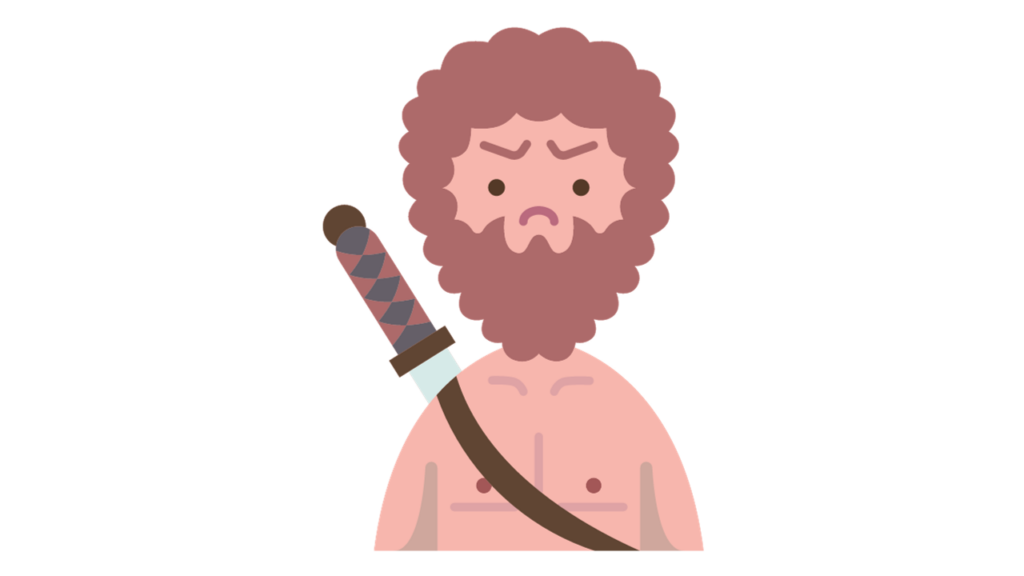
Odysseus was the King of Ithaca, a small island in the Ionian Sea. He was known for his intelligence, cunning, and resourcefulness. When the Trojan War erupted, he was among the Greek heroes who set sail to Troy. It was Odysseus who came up with the idea of the wooden horse, a clever stratagem that allowed the Greeks to infiltrate the city of Troy. This idea ultimately led to the fall of Troy after ten years of conflict.
The Journey Home: Following the fall of Troy, Odysseus and his men set out for their homeland, Ithaca. However, their journey back home would prove to be an arduous and eventful one. Along the way, they faced numerous challenges and adventures, which would last for ten years. Some of the most famous episodes in Odysseus’s journey include:
- The Cyclops: Odysseus and his men encountered the Cyclops Polyphemus, who trapped them in his cave. Odysseus cleverly blinded the Cyclops and escaped by hiding under the sheep.
- The Sirens: The crew encountered the enchanting Sirens whose songs lured sailors to their doom. Odysseus had his men plug their ears with beeswax while he tied himself to the mast so that he could hear the Sirens’ song without being lured into danger.
- Scylla and Charybdis: They had to navigate between the treacherous monster Scylla and the deadly whirlpool Charybdis, losing some of their crew in the process.
- The Land of the Lotus-Eaters: Some of Odysseus’s men ate the lotus plant, which caused them to lose their desire to return home. Odysseus had to drag them back to the ship.
- The Island of Circe: Odysseus and his men were turned into pigs by the enchantress Circe. With the help of the god Hermes, Odysseus resisted her magic and eventually secured the release of his crew.
The Return to Ithaca: After a decade of hardships and adventures, Odysseus finally made it back to Ithaca. However, his problems were far from over. His home had been overrun by suitors who believed he was dead and sought to marry his wife, Penelope, and claim his throne. With the help of his son Telemachus and the goddess Athena, Odysseus devised a plan to defeat the suitors.
The Reunion and Resolution: Odysseus revealed his true identity to Penelope by demonstrating his knowledge of their bed, which only he would know. He then engaged in a contest of skill, stringing his great bow and shooting an arrow through twelve axe heads, proving his worthiness. With the support of Telemachus, the loyal servants, and Athena, Odysseus slaughtered the suitors and reclaimed his kingdom.
The story of Odysseus is a tale of endurance, cleverness, and the arduous journey of a hero trying to return home after a long and perilous adventure. “The Odyssey” serves as a classic example of ancient Greek literature and explores themes of heroism, cunning, loyalty, and the importance of home and family.
3. The Beautiful Helen of Troy
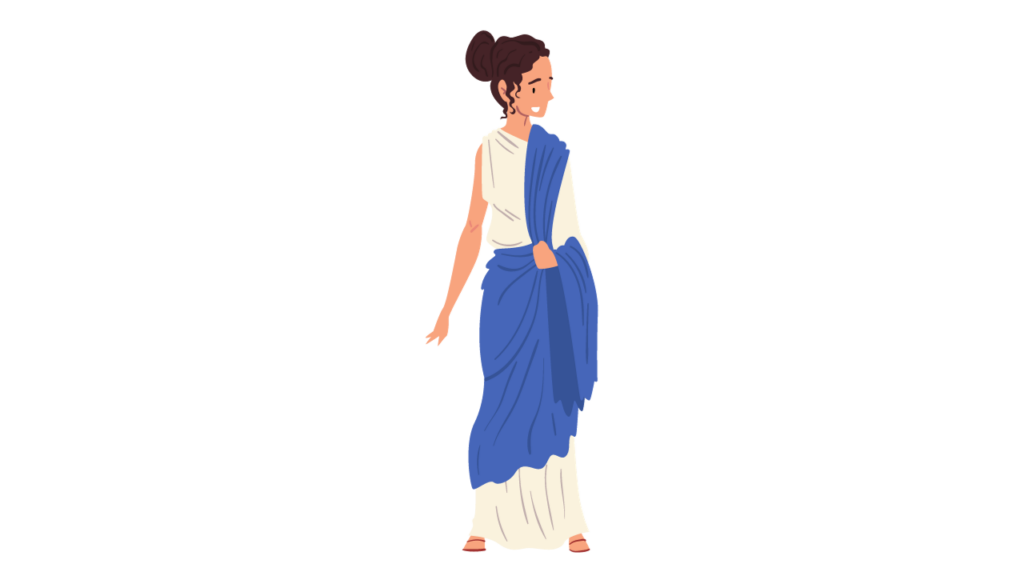
In Greek mythology, the story of Helen of Troy is one filled with beauty, love, betrayal, and the legendary Trojan War. Helen, also known as “the face that launched a thousand ships,” was the daughter of Zeus, the king of the gods, and Leda, the mortal queen of Sparta. Her beauty was renowned throughout the ancient world, and her fate would shape the course of history.
Helen’s Divine Birth: Helen’s divine lineage was evident from her very birth. According to the myth, she and her twin brother, Castor and Pollux, were born from two eggs. Castor and Pollux were fathered by Leda’s mortal husband, Tyndareus, while Helen and Clytemnestra were fathered by Zeus, who had taken the form of a swan. This divine heritage made Helen a symbol of both beauty and destiny.
Marriage to Menelaus: Helen’s unparalleled beauty attracted numerous suitors, and she was married to Menelaus, the king of Sparta. However, her beauty would soon lead to the most famous conflict in Greek mythology.
The Judgement of Paris: The Trojan War was set in motion by the Judgement of Paris. Eris, the goddess of discord, threw a golden apple inscribed with “For the fairest” into a banquet at the divine wedding of Peleus and Thetis. Three goddesses, Hera, Athena, and Aphrodite, claimed the apple, and Zeus appointed the young prince Paris of Troy to make the decision. Each goddess offered a bribe to sway Paris’s judgment. Aphrodite promised him the love of the most beautiful mortal woman on Earth, Helen. Paris chose Aphrodite as the fairest, and the prophecy unraveled.
Helen’s Seduction and Elopement: Paris traveled to Sparta, and with the assistance of Aphrodite, he and Helen fell in love. They eloped, leaving behind Menelaus, who felt betrayed and humiliated.
The Trojan War: Menelaus, along with other Greek kings, invoked their oaths to help him retrieve Helen. This call to arms initiated the Trojan War, which lasted ten long years. The Greek forces, led by Agamemnon, set sail to Troy, their thousand ships carrying countless warriors. Helen, despite the circumstances of her departure, was a symbol of the conflict itself.
The Wooden Horse and Troy’s Fall: The war continued with numerous battles and confrontations between the Greeks and Trojans. The Greeks finally gained the upper hand through cunning subterfuge. They constructed a massive wooden horse and hid elite soldiers within it. The Trojans, believing the horse to be a gift, brought it into their city. That night, the Greek soldiers emerged from the horse and opened the gates of Troy. The city fell, and Helen was ultimately rescued by Menelaus.
After the War: The war left a legacy of destruction, and the Greek heroes faced numerous trials on their journey home. Helen and Menelaus eventually returned to Sparta, where they lived out their lives. In some versions of the myth, their marriage was portrayed as being reconciled, while in others, their relationship remained strained.
Helen of Troy’s story is a powerful reminder of the consequences of beauty, desire, and the impact of human choices on the course of history. Her beauty may have launched a thousand ships, but it was the bravery and cunning of the Greeks that ultimately brought an end to the legendary conflict.
4. The Tragic Oedipus
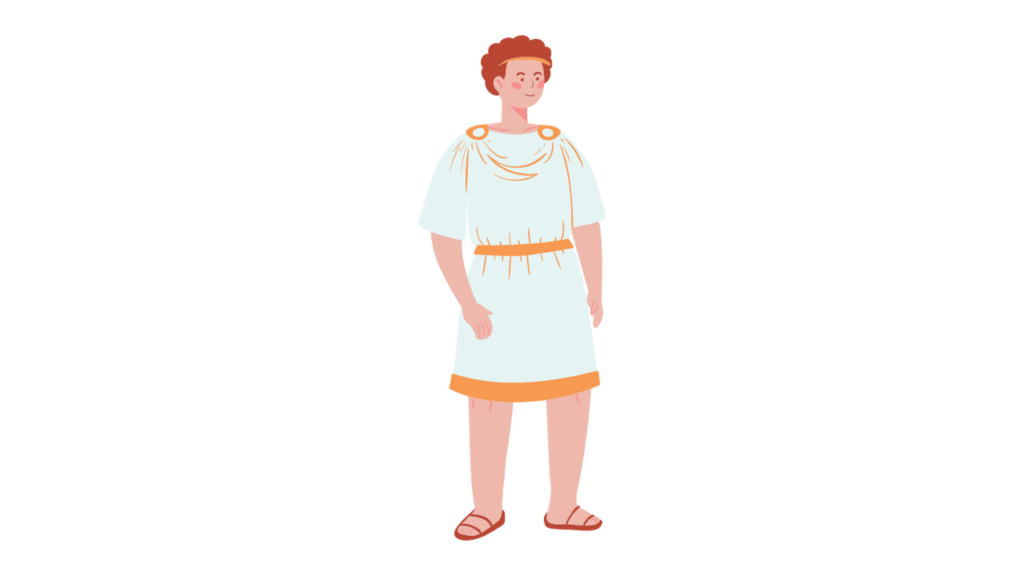
In the ancient realm of Thebes, a prophecy cast a shadow of doom over the city. King Laius and Queen Jocasta were told that their son would grow up to kill his father and marry his mother. Fearing this terrible fate, they abandoned their infant son, Oedipus, in the wilderness.
Saved by Fate: Oedipus was discovered and raised by a shepherd from the neighboring city of Corinth. He grew up believing the Corinthian king and queen were his parents, blissfully unaware of his true origins.
The Prophecy Unfolds: As a young man, Oedipus heard a disturbing prophecy that he would kill his father and marry his mother. Determined to escape this destiny, he left Corinth, vowing never to return.
The Fateful Encounter: On his journey, Oedipus met a group of travelers at a crossroads. A quarrel ensued, and he unknowingly killed his real father, King Laius.
A Kingdom in Despair: Thebes was plagued by the Sphinx, a creature that terrorized the city with riddles. Oedipus, known for his intelligence, solved the riddle, saving Thebes from the Sphinx. In gratitude, the Thebans crowned him king and offered him Queen Jocasta’s hand in marriage, not knowing that she was his birth mother.
The Shocking Truth: Years passed, and the city was again plagued by a curse, this time a deadly plague. Oedipus, determined to save his people, sought the Oracle of Delphi for guidance. To his horror, the oracle revealed that he was the source of Thebes’ misery.
The Tragic Revelation: Through a series of inquiries, Oedipus uncovered the truth. He had unwittingly fulfilled the prophecy by killing his father and marrying his mother.
Jocasta’s Despair: Queen Jocasta, upon realizing the horrifying truth, hung herself in despair, leaving Oedipus to grapple with the consequences of his actions.
Blinded by Truth: In his anguish, Oedipus gouged out his own eyes, rendering himself blind. He was then exiled from Thebes, his kingdom, and his family.
The End of Oedipus: Oedipus wandered as a blind, broken man. He eventually found refuge in Athens, where he met a compassionate end to his suffering.
The story of Oedipus, a tragedy born of fate and free will, serves as a powerful example of the inexorable nature of destiny in Greek mythology, where one’s best efforts to escape a predetermined fate can ironically lead to its fulfillment.
5. The Courageous Perseus
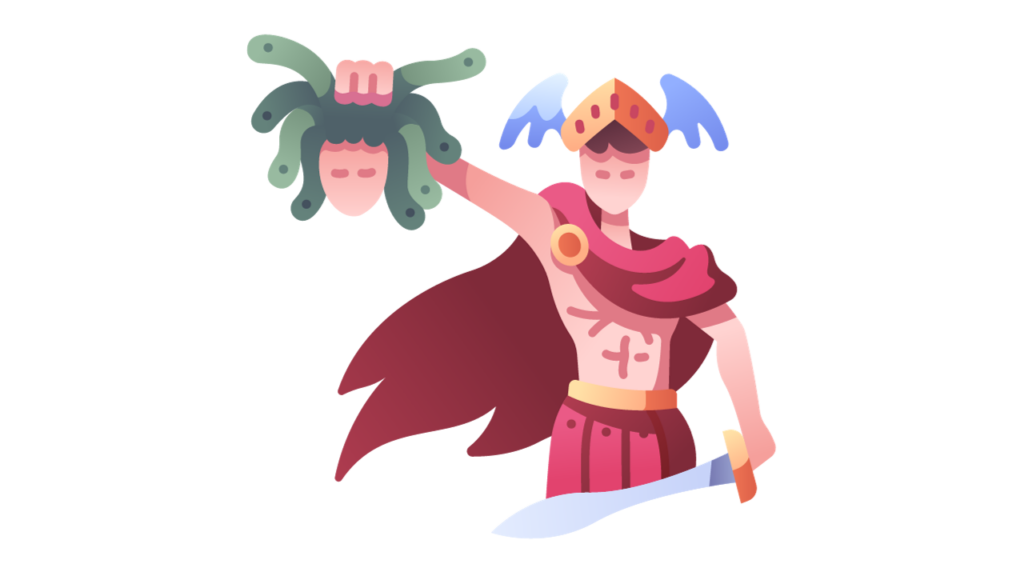
In ancient Greece, there lived a hero whose name would echo through the annals of history: Perseus. He was born to the beautiful mortal woman Danaë and the powerful god Zeus. However, his early life was marred by a cruel twist of fate.
Danaë and the Golden Shower: King Acrisius of Argos had heard a prophecy that he would one day be killed by his daughter’s son. To prevent this grim fate, he imprisoned Danaë in a bronze chamber deep beneath the palace. Zeus, infatuated with Danaë’s beauty, visited her in the form of a golden shower, and she soon bore a son, Perseus.
The Perilous Quest: Acrisius, fearing the prophecy would come true, cast Danaë and the infant Perseus adrift in a chest at sea. They washed ashore on the island of Seriphos, where they were taken in by the kind fisherman Dictys.
Years passed, and Perseus grew into a strong and courageous young man. The island’s ruler, King Polydectes, desired Danaë but wanted Perseus out of the way. He devised a treacherous plan: he demanded the head of the Gorgon Medusa as a gift, knowing it was a deadly quest that would likely lead to Perseus’s demise.
Athena and the Gifts: Perseus, undaunted, was visited by the goddess Athena, who provided him with divine gifts. She gave him a polished bronze shield, like a mirror, to avoid looking directly at Medusa, who could turn anyone who gazed upon her into stone. She also provided him with a sword and Hades’s Helm of Darkness to render him invisible.
The Sisters of Medusa: Perseus embarked on his perilous journey, and his first challenge was to locate the Gorgon sisters: Stheno and Euryale, who were immortal, and the mortal Medusa. He found them in a dark cave and used Athena’s shield to avoid looking at them directly. With his sword, he beheaded Medusa while she slept, her snake-like locks hissing in the gloom.
Pegasus and the Rescue: As Perseus left the cave with Medusa’s head, the winged horse Pegasus and the giant Chrysaor sprang from her lifeless body. They would later play roles in other Greek myths.
The Rescue of Andromeda: On his journey home, Perseus came across a scene of terror. The beautiful princess Andromeda was chained to a rock as a sacrifice to a sea monster, Cetus. Perseus, smitten by her beauty, used the head of Medusa to turn Cetus into stone and rescued Andromeda. He then married her.
Return to Seriphos: Returning to Seriphos, Perseus used Medusa’s head to defeat King Polydectes and rescue his mother, Danaë, from his advances.
The Prophecy Realized: Perseus ultimately learned that the prophecy did come true but not in the way King Acrisius had expected. During a sports competition in Larissa, Perseus accidentally threw a discus that struck and killed Acrisius, fulfilling the prophecy.
A Hero’s Legacy: Perseus became a legendary hero, remembered for his courage and resourcefulness. He would go on to have many other adventures, solidifying his status in Greek mythology as a true symbol of courage and heroism.
The tale of Perseus stands as a testament to the indomitable spirit and resourcefulness of a hero who overcame overwhelming odds and fulfilled his destiny with unwavering bravery.
6. The Heroic Achilles
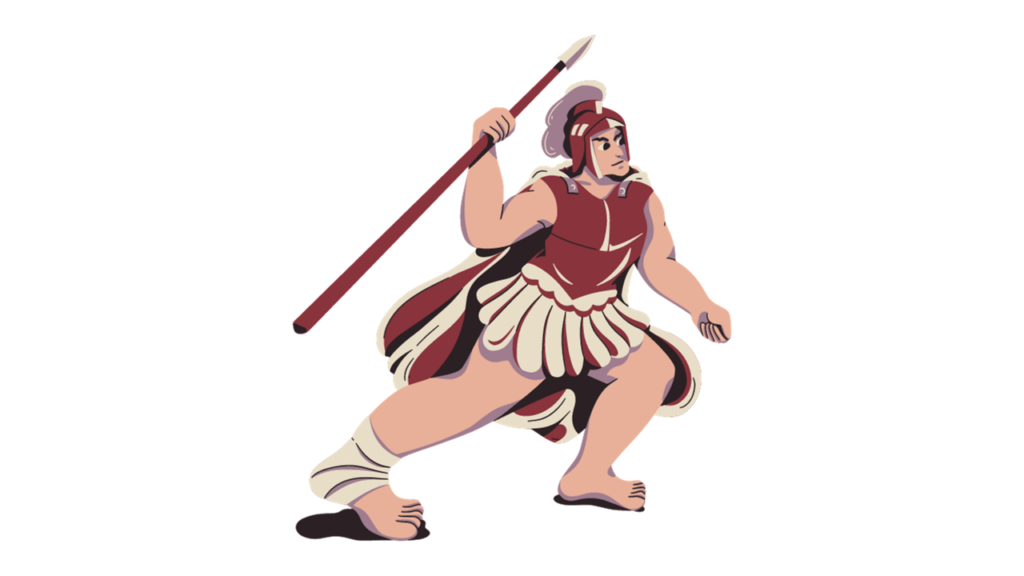
In the rich tapestry of Greek mythology, one figure stands out as a symbol of unparalleled bravery and strength: Achilles. The story of Achilles is a legendary tale of heroism, destiny, and the clash of gods and mortals.
Birth and Childhood Achilles was born to Thetis, a sea nymph, and Peleus, a mortal king. His birth was shrouded in secrecy and mystique. To protect him from harm, his mother dipped him in the River Styx, making him invulnerable everywhere except for his heel, where she held him. This act gave rise to the term “Achilles’ heel,” symbolizing a person’s one vulnerable point.
The Heroic Warrior As Achilles grew, he became a formidable warrior known for his unmatched skill and courage. He joined the Greek forces in the Trojan War, which erupted after Paris, a Trojan prince, abducted Helen, the wife of Menelaus, the king of Sparta.
The Wrath of Achilles A pivotal moment in the Trojan War occurred when Agamemnon, the Greek leader, insulted Achilles by taking his concubine, Briseis. This led to Achilles withdrawing from the battle and praying to his mother Thetis for help. In response, Thetis convinced Hephaestus, the blacksmith god, to craft a set of godly armor for her son. Achilles emerged from his self-imposed exile, fueled by an unstoppable desire for revenge.
The Duel with Hector Achilles’ reentry into the battle marked a turning point in the war. In a climactic duel, he faced Hector, the noblest of Trojan warriors. The gods favored Achilles, and he struck Hector down, avenging the honor of his fallen comrade Patroclus, who died in his armor.
Achilles’ Tragic End Achilles’ fate, however, was not one of triumph. While still invulnerable except for his heel, he was mortally wounded when Paris, guided by Apollo, shot an arrow into his heel during the Trojan War’s final stages. The great hero met his end, fulfilling a prophecy and sealing his place in Greek mythology.
Legacy Achilles’ story has resonated through the ages, serving as an enduring symbol of heroism, vulnerability, and the inexorable power of fate. The “Achilles’ heel” metaphor remains a testament to the consequences of a single, fatal flaw in even the mightiest of heroes.
The tale of Achilles, his bravery in battle, his moments of wrath, and his tragic end, stands as one of the most enduring and iconic narratives in Greek mythology, capturing the essence of the hero’s journey and the eternal struggle between mortality and divinity.
Conclusion
The mortals of Greek mythology, with their extraordinary qualities, flaws, and enduring tales, have left an indelible mark on literature, art, and popular culture. From the bravery of Hercules to the strategic brilliance of Odysseus, these figures remind us of the complexities of human nature and the powerful narratives that shaped ancient Greek beliefs. Their stories continue to captivate and resonate with audiences, further cementing their place in the fascinating realm of Greek mythology.
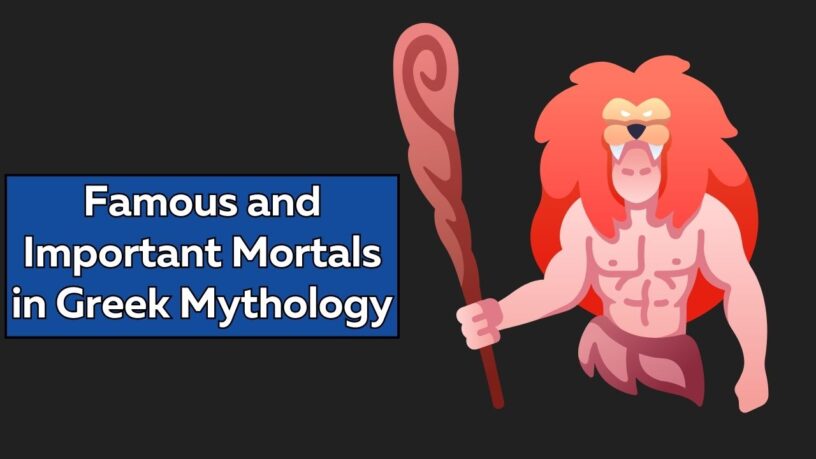
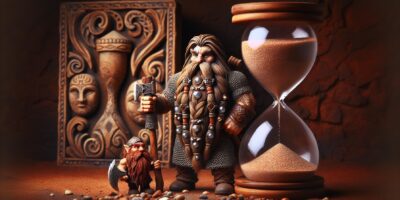
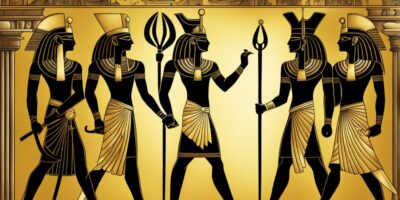

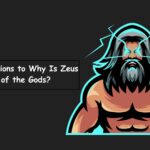
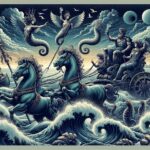
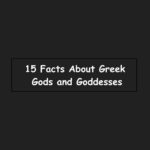
Leave a Reply